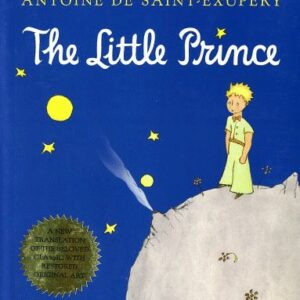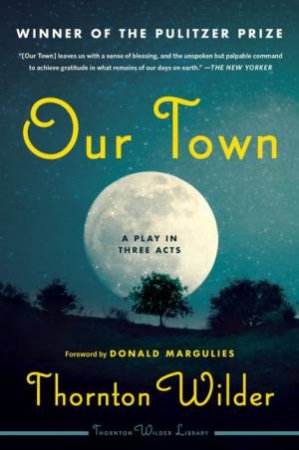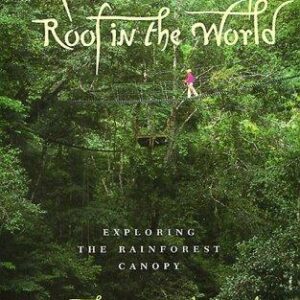Eighteenth-Century Environmental Humanities
$130.00
| Title | Range | Discount |
|---|---|---|
| Trade Discount | 5 + | 25% |
- Description
- Additional information
Description
This groundbreaking new volume unites eighteenth-century studies and the environmental humanities, showcasing how these fields can vibrantly benefit one another. In eleven chapters that engage a variety of eighteenth-century texts, contributors explore timely themes and topics such as climate change, new materialisms, the blue humanities, indigeneity and decoloniality, and green utopianism. Additionally, each chapter reflects on pedagogical concerns, asking: How do we teach eighteenth-century environmental humanities? With particular attention to the voices of early-career scholars who bring cutting-edge perspectives, these essays highlight vital and innovative trends that can enrich both disciplines, making them essential for classroom use.
This groundbreaking interdisciplinary collection demonstrates how eighteenth-century studies can be taught through the lens of the environmental humanities. Activating topics such as climate change, new materialisms, the blue humanities, indigeneity and decoloniality, and green utopianism to interpret eighteenth-century literature and culture, each essay includes recommendations for innovative teaching and learning.
Jeremy Chow is an assistant professor of English at Bucknell University in Lewisburg, Pennsylvania. His scholarship explores the relationships among eighteenth-century literature and culture, the environmental humanities, and gender and sexuality studies.
List of Illustrations
Introduction: Eighteenth Century + Environmental Humanities
Jeremy Chow
Part I: Eighteenth Century + Climate Change
Chapter 1: Towards a Genealogy of Geoengineering: Erasmus Darwin and the Little Ice Age
Elliot Patsoura
Chapter 2: Storm Apostrophe
Annette Hulbert
Chapter 3: “When Stormy Winds Happen”: Divine Providence, Climate Change Discourse, and the Cause of Weather Disasters
Adam W. Sweeting
Part II: Eighteenth Century + New Materialisms
Chapter 4: Phillis Wheatley Peters’ Niobean Soundscapes
Shelby Johnson
Chapter 5: Syphilis and Natural History: The Ethical Limits of Human Mastery
Mariah Crilley
Part III: Eighteenth Century + Blue Humanities
Chapter 6: Shore/Lines: Drawing Environmental Change on Eighteenth-Century Prince Edward Island
Claire Campbell
Chapter 7: Of Water, Wind, and Storms: The Elemental Regimes of the Buccaneer Journal
Jason Payton
Part IV: Eighteenth Century + Indigeneity and Decoloniality
Chapter 8: “Supporting Sinking Nations”: John Dennis’s Indigenous Women and their Disasters
Matt Duquès
Chapter 9: Imagining Decolonial Futures in William Gilbert’s The HurricaneAmi Yoon
Part V: Eighteenth Century + Green Utopias
Chapter 10: Slavery and Plantation Stewardship: The Eighteenth-Century Caribbean Georgics of James Grainger and Philip Freneau
Christopher Allan Black
Chapter 11: John Thelwell and L.M. Montgomery Write the Green City
Kate Scarth
Acknowledgments
Bibliography
Notes on Contributors
Index
Introduction: Eighteenth Century + Environmental Humanities
Jeremy Chow
Part I: Eighteenth Century + Climate Change
Chapter 1: Towards a Genealogy of Geoengineering: Erasmus Darwin and the Little Ice Age
Elliot Patsoura
Chapter 2: Storm Apostrophe
Annette Hulbert
Chapter 3: “When Stormy Winds Happen”: Divine Providence, Climate Change Discourse, and the Cause of Weather Disasters
Adam W. Sweeting
Part II: Eighteenth Century + New Materialisms
Chapter 4: Phillis Wheatley Peters’ Niobean Soundscapes
Shelby Johnson
Chapter 5: Syphilis and Natural History: The Ethical Limits of Human Mastery
Mariah Crilley
Part III: Eighteenth Century + Blue Humanities
Chapter 6: Shore/Lines: Drawing Environmental Change on Eighteenth-Century Prince Edward Island
Claire Campbell
Chapter 7: Of Water, Wind, and Storms: The Elemental Regimes of the Buccaneer Journal
Jason Payton
Part IV: Eighteenth Century + Indigeneity and Decoloniality
Chapter 8: “Supporting Sinking Nations”: John Dennis’s Indigenous Women and their Disasters
Matt Duquès
Chapter 9: Imagining Decolonial Futures in William Gilbert’s The HurricaneAmi Yoon
Part V: Eighteenth Century + Green Utopias
Chapter 10: Slavery and Plantation Stewardship: The Eighteenth-Century Caribbean Georgics of James Grainger and Philip Freneau
Christopher Allan Black
Chapter 11: John Thelwell and L.M. Montgomery Write the Green City
Kate Scarth
Acknowledgments
Bibliography
Notes on Contributors
Index
“A welcome teaching tool for the undergraduate course in eighteenth-century studies—if you want to integrate environmental studies into your class but don’t know where to begin, start here.”
“A field-defining collection, Eighteenth-Century Environmental Humanities demonstrates how the emergent methodologies of the environmental humanities illuminate and are in turn enriched by the study of eighteenth-century history and cultural production.”
"This innovative collection brilliantly addresses the challenge of studying and teaching the eighteenth century from an Anthropocene vantage. The wide-ranging essays explore the meaning of environmental justice for eighteenth-century writers reckoning with the socio-ecological violence of transatlantic empire."
“A provocative and compelling case for centering the eighteenth century within environmental humanities. This interdisciplinary collection of essays will be of great interest and lasting value to literary scholars and teachers, and it will serve as a touchstone for all future work at the intersections of eighteenth-century studies and the environmental humanities.”
Additional information
| Weight | 1 oz |
|---|---|
| Dimensions | 1 × 6 × 9 in |









